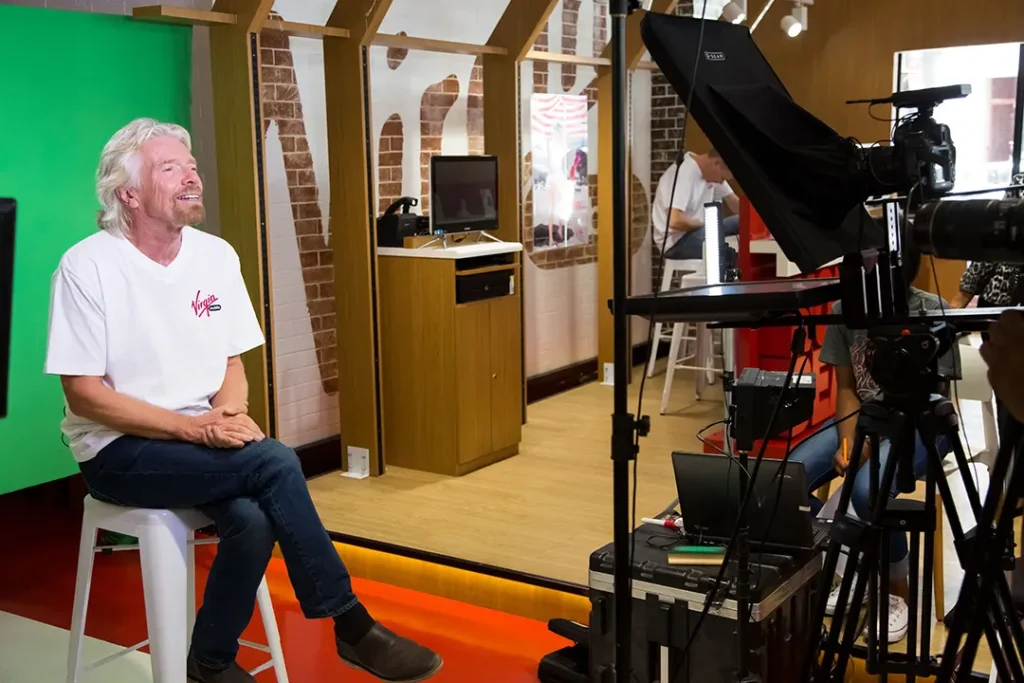By Daniel Butcher
Managers should be on the lookout for signs of burnout in their team members, and a sudden decline in work performance, missed deadlines, or increased errors could be an indication that an employee needs help. Burnout leads to reduced productivity and increased turnover, which is expensive for organizations and causes headaches for managers.
Academy of Management Scholar Sean Martin of the University of Virginia said there’s evidence that many people’s views of the workplace are pretty bleak right now.
“I saw some statistics indicating a lot of folks are feeling a high level of burnout—two-thirds of people would rather get a new boss than a pay raise; they’re just tired of dealing with their boss,” Martin said. “I recently saw another poll that said more than half of people would trust a stranger more than their boss.”
Worker stress has remained at record high levels since the pandemic, with 52% of employees in the U.S. and Canada reporting that they experienced a significant amount of stress on the previous day, according to Gallup. Managers who want to help avoid or mitigate burnout on their team need to realize that people are dealing with stressors both in and out of work and, in response, demonstrate flexibility and empathy.
“There’s a lot of things that are going on in someone’s life like managing family dynamics, extracurriculars, maybe they have care duties for young kids or older parents, so burnout is likely to be present in some form on your team,” Martin said. “If that’s the case, recognize that it’s not always just because of what’s going on at work, although it certainly could be.
“We could either be the kinds of leaders who say, ‘I don’t care—this is work—check all of that stuff at the door and do your job, ’or we could say, ‘I want to deal with a whole person and be the kind of leader that, when people are finished working with me, they view their time with me as time well spent and believe that I had a positive impact on their life and their career,’” he said.
“If you want to be that, then you have to recognize that burnout is an ever-present threat, and when you see people starting to experience it and start seeing the telltale signs of stress, such as retreating into oneself and performance issues in terms of objective measurables, be willing to ask, ‘What can I do? How can I help? ’to start mitigating the burnout that people can feel.”
-
Daniel Butcher is a writer and the Managing Editor of AOM Today at the Academy of Management (AOM). Previously, he was a writer and the Finance Editor for Strategic Finance magazine and Management Accounting Quarterly, a scholarly journal, at the Institute of Management Accountants (IMA). Prior to that, he worked as a writer/editor at The Financial Times, including daily FT sister publications Ignites and FundFire, Crain Communications’s InvestmentNews and Crain’s Wealth, eFinancialCareers, and Arizent’s Financial Planning, Re:Invent|Wealth, On Wall Street, Bank Investment Consultant, and Money Management Executive. He earned his bachelor’s degree from the University of Colorado Boulder and his master’s degree from New York University. You can reach him at dbutcher@aom.org or via LinkedIn.
View all posts
Up next....
When Entrepreneurs Can’t Acknowledge Failure, Disaster Strikes
By Daniel Butcher
Elizabeth Holmes, who was convicted of fraud for lying about the effectiveness of the blood-testing product of her biotechnology company, Theranos, is a cautionary tale illustrating a potential downside of entrepreneurship. Unable to deal with the failure of her company’s blood-testing methods, she just plowed ahead, refusing to acknowledge the disappointing results or telling any of the investors—or anyone else—that the tests weren’t working. She pretended like everything was okay, continued to collect investor money, and built up the biotech startup to a $9 billion valuation.
Academy of Management Scholar Dean Shepherd of the University of Notre Dame said that it’s common for entrepreneurs to deal with failure poorly, but investors failed to effectively scrutinize Theranos.
“A lot of the stakeholders there were maybe willfully ignorant—they wanted to believe her,” Shepherd said. “They didn’t ask probing questions; they ignored the negative signals, which is what we call a confirmation device.
“They look for information that confirms their opinions, and they discount or ignore information that disconfirms them, and so in many ways, she was negligent, but they were also negligent,” he said.
Sometimes entrepreneurs can’t even acknowledge failure to themselves, much less publicly, because their entire identity is wrapped up in success. One major failure could crack that self-image.
Shepherd said that job loss—or the failure of one’s business—can devastate a person’s sense of identity. He wrote about his research findings related to such phenomena in Hitting Rock Bottom After Job Loss: Bouncing Back to Create a New Positive Work Identity.
“Failure can have a huge impact on you psychologically, because your identity is quite often highly related to the things that you do for work, and when you lose that identity, you go into a crisis or a freefall, because you don’t know who you are anymore,” Shepherd said. “And if you don’t know who you are, you don’t know how to socially act, and it can be a very dangerous situation.”
-
Daniel Butcher is a writer and the Managing Editor of AOM Today at the Academy of Management (AOM). Previously, he was a writer and the Finance Editor for Strategic Finance magazine and Management Accounting Quarterly, a scholarly journal, at the Institute of Management Accountants (IMA). Prior to that, he worked as a writer/editor at The Financial Times, including daily FT sister publications Ignites and FundFire, Crain Communications’s InvestmentNews and Crain’s Wealth, eFinancialCareers, and Arizent’s Financial Planning, Re:Invent|Wealth, On Wall Street, Bank Investment Consultant, and Money Management Executive. He earned his bachelor’s degree from the University of Colorado Boulder and his master’s degree from New York University. You can reach him at dbutcher@aom.org or via LinkedIn.
View all posts
Up next....
Entrepreneurs Face Several Dangers
By Daniel Butcher
While entrepreneurs’ success stories get most of the publicity, the dangers they face are rarely talked-about elements of entrepreneurship.
Academy of Management Scholar Dean Shepherd of the University of Notre Dame noted that professors, business-book authors, and other journalists often tout the benefits of entrepreneurship without talking about its downside: Entrepreneurs often struggle and fail, sometimes with bad consequences for themselves, their colleagues, their loved ones, and even society.
“For quite a while, I’ve been researching entrepreneurs losing their business and people working on projects at an entrepreneurial firm when those projects fail,” Shepherd said. “The dark side of entrepreneurship is the negative emotional and psychological costs.
“The downside of entrepreneurship is the loss of your capital, your money, your personal finances,” he said. “And then there’s the destructive side—we always assume that entrepreneurship is doing good for other people, but it may not be.
“There might be some people who are greedy and engage in entrepreneurship that has a net destruction of wealth, so that really actually harms the natural environment or harms other people in order to just benefit themselves, or they didn’t mean to do it, but it just worked out that way.”
Opportunities exist in environments of uncertainty, so failure is going to be part of entrepreneurial endeavors. Entrepreneurs—and the people writing about them—should ask: What about the downside risk?
“Everyone says entrepreneurship is so good, and I do love entrepreneurship, but if we don’t understand the dark side, then how do we help entrepreneurs overcome some of the challenges they face being an entrepreneur, particularly when entrepreneurs pursue opportunities,” Shepherd said.
“We have to be able to help entrepreneurs minimize the potential losses from their action and avoid destructive entrepreneurship,” he said. “If we don’t understand why and how some people destroy societal wealth or the environment, then how are we going to be able to stop them?”
Shepherd highlighted a key question: “How are we going to be able to educate entrepreneurs to make sure that they don’t do that, and that they’re productive, rather than destructive?”
“The whole stream of my research along those lines is to try and really understand the flip side of the coin, because if you don’t understand the flip side, then you don’t understand the coin completely,” he said.
-
Daniel Butcher is a writer and the Managing Editor of AOM Today at the Academy of Management (AOM). Previously, he was a writer and the Finance Editor for Strategic Finance magazine and Management Accounting Quarterly, a scholarly journal, at the Institute of Management Accountants (IMA). Prior to that, he worked as a writer/editor at The Financial Times, including daily FT sister publications Ignites and FundFire, Crain Communications’s InvestmentNews and Crain’s Wealth, eFinancialCareers, and Arizent’s Financial Planning, Re:Invent|Wealth, On Wall Street, Bank Investment Consultant, and Money Management Executive. He earned his bachelor’s degree from the University of Colorado Boulder and his master’s degree from New York University. You can reach him at dbutcher@aom.org or via LinkedIn.
View all posts
Up next....
Dealing with a Failed Business
By Daniel Butcher
Most people’s reaction to the failure of their own business going under is like grief after the loss of a loved one. For many entrepreneurs, the best way to cope with failure is switching between talking about it and reflecting on it, according to Academy of Management Scholar Dean Shepherd of the University of Notre Dame.
Shepherd said that for some people, the more they talk about it, the worse their emotional reaction to the painful event gets. But for others, talking about their business failing can be cathartic.
“For some people, talking about failure helps them process it, but for others, dwelling on it causes the negative emotions to worsen, and that people actually need to have some periods where they can recharge their emotional batteries,” Shepherd said.
“The most recent research in that area said people actually have to oscillate between these two, a loss orientation, where you’re focusing on it, and a restoration orientation, where you’re deliberately ignoring it, not thinking about it, and start addressing secondary causes of stress, like selling the house, moving the kids from one school to another, these types of things,” he said.
“The important part is oscillating between the two, which I thought this was the weirdest thing, but I wrote a paper that ended up getting accepted in the Academy of Management Review, and then that set off quite a stream of related research.”
Shepherd then asked himself, “What happens if the organization doesn’t disappear, but the project that I’m working on does?” He worked on a paper with two coauthors about the negative emotional reactions that scientists working in Germany have when their projects fail.
“Those who are able to learn the most from the failure and those who were motivated to try again were the ones who were engaged in this oscillation process—they used both loss orientation and also restoration orientation,” Shepherd said. “They were able to learn the most and remain committed to the organization.”
-
Daniel Butcher is a writer and the Managing Editor of AOM Today at the Academy of Management (AOM). Previously, he was a writer and the Finance Editor for Strategic Finance magazine and Management Accounting Quarterly, a scholarly journal, at the Institute of Management Accountants (IMA). Prior to that, he worked as a writer/editor at The Financial Times, including daily FT sister publications Ignites and FundFire, Crain Communications’s InvestmentNews and Crain’s Wealth, eFinancialCareers, and Arizent’s Financial Planning, Re:Invent|Wealth, On Wall Street, Bank Investment Consultant, and Money Management Executive. He earned his bachelor’s degree from the University of Colorado Boulder and his master’s degree from New York University. You can reach him at dbutcher@aom.org or via LinkedIn.
View all posts
Up next....
The Secrets to Success for “Metacognitive” Entrepreneurs
By Daniel Butcher
Despite being dyslexic, Richard Branson co-founded Virgin Group in 1970 and eventually became a billionaire, British knight, and celebrity. He has speculated that his dyslexia was actually an asset by forcing him to think in less conventional ways when brainstorming, as well as launching and running businesses.
Academy of Management Scholar Dean Shepherd of the University of Notre Dame said that research by him and his colleagues shows that more “metacognitive” entrepreneurs are, the more adaptable they are and the more likely they are to pivot, ultimately achieving better results. Metacognition is about understanding how your own brain makes sense of the world, how your learn, and how you solve problems.
“Branson, who founded the Virgin Group, has dyslexia, and in an interview he was saying it was because of that dyslexia that he had to learn how to think in a different, more deliberative way, rather than rely on intuition,” Shepherd said. “He attributes his success as an entrepreneur to his dyslexia, because he engages in metacognition, thinking about the way that we think about things—we often just make decisions based on intuition.
“We don’t think about things; we just make an automatic decision, and sometimes our intuition is right, but sometimes it can be wrong, and if we’re not thinking about it, we don’t question it,” he said. “And with dyslexia, he learned these learning skills, which made him more metacognitive, so he thought more about the way that he thinks about things.”
Research on primary schools found that children who are taught metacognitive skills perform significantly better in reading and mathematics. Those metacognitive skills can be applied to entrepreneurship and leadership as well.
“Rather than just assuming that they’ll figure it out intuitively, practitioners of metacognition ask themselves four questions: ‘What is the problem really asking? What are we really facing here? How is this similar to something that we’ve faced in the past? And how is it different from what we’ve faced in the past?’” Shepherd said. “It stops us from doing this automatic thinking, then we say, ‘What’s the best way to approach this problem? What are the different ways that we can approach this situation?’ and choose one.
“As we’re engaged in that, we stop ourselves to reflect and we say, ‘How am I doing? Am I heading in the right direction?’” he said. “When you use metacognition, you interrupt your intuition at different periods just to remind yourself to be a little bit more deliberative in the way that you think now.”
Intuition is important, Shepherd stressed. It’s an effective way to make quick decisions that is especially effective when it’s based on expertise. But problems arise for those who never question that intuitive decision-making process.
“There are some people who rarely question those assumptions based on intuition, but as we engage in metacognition, we start to question them,” Shepherd said. “And when you have dyslexia, it forces you to have that sort of thinking discipline in order to be more deliberative in the way that you think.
“That’s my that was my interpretation of Branson’s statement,” he said. “While I’m not sure if he would necessarily agree with all of that, he did say that it forced him to be more disciplined in the way he thinks.”
-
Daniel Butcher is a writer and the Managing Editor of AOM Today at the Academy of Management (AOM). Previously, he was a writer and the Finance Editor for Strategic Finance magazine and Management Accounting Quarterly, a scholarly journal, at the Institute of Management Accountants (IMA). Prior to that, he worked as a writer/editor at The Financial Times, including daily FT sister publications Ignites and FundFire, Crain Communications’s InvestmentNews and Crain’s Wealth, eFinancialCareers, and Arizent’s Financial Planning, Re:Invent|Wealth, On Wall Street, Bank Investment Consultant, and Money Management Executive. He earned his bachelor’s degree from the University of Colorado Boulder and his master’s degree from New York University. You can reach him at dbutcher@aom.org or via LinkedIn.
View all posts
Up next....
Entrepreneurial Success Requires Luck as Well as Hard Work
By Daniel Butcher
There’s a dirty little secret about what separates successful entrepreneurs from those who fail: Many of the winners have luck on their side, and many of the failures work just as hard but don’t succeed through no fault of their own, according to Academy of Management Scholar Dean Shepherd of the University of Notre Dame.
Shepherd said that stories of entrepreneurs who have failed quite a bit are common. There’s often a disconnect between how investors and other entrepreneurs view them and how they are portrayed in the media.
“You sometimes see it in Silicon Valley, where they say, ‘I’ll only invest in in entrepreneurs who have failed before, because it means that they’ve learned and they know to make tough decisions,’ whereas you see press reports in other parts of the world, or even other parts of America, where they really penalize an entrepreneur who’s failed, despite the fact that they tried their best,” Shepherd said.
“They lost their own wealth, but the media ridicule people who have failed,” he said. “I see that in the press sometimes, where they attribute success to the person’s skills and experience, but then when someone fails, they say that there’s something fundamentally wrong with that person, and the press has an anti-failure bias, which doesn’t help.”
Luck be a lady
Unsuccessful entrepreneurs may have had to deal with a challenging external environment or competitive landscape or face any number of variables beyond their control—regardless of their skills, experience, and effort.
“They could have done everything right and then had bad luck, and the other person could have done everything wrong, and just by luck, they ended up being in the right place at the right time, and they were successful,” Shepherd said. “In either case, you don’t actually learn much from those instances, because luck played such a large role, but then they’ll attribute the person who was successful to their decisions and actions, even though it wasn’t the case, and they’ll attribute failure to the person’s decisions and actions, but it wasn’t the case.
“And so it’s really like a form of superstitious learning,” he said. “We’re learning something, but actually not gaining any knowledge from it. We’re learning something that’s wrong.”
-
Daniel Butcher is a writer and the Managing Editor of AOM Today at the Academy of Management (AOM). Previously, he was a writer and the Finance Editor for Strategic Finance magazine and Management Accounting Quarterly, a scholarly journal, at the Institute of Management Accountants (IMA). Prior to that, he worked as a writer/editor at The Financial Times, including daily FT sister publications Ignites and FundFire, Crain Communications’s InvestmentNews and Crain’s Wealth, eFinancialCareers, and Arizent’s Financial Planning, Re:Invent|Wealth, On Wall Street, Bank Investment Consultant, and Money Management Executive. He earned his bachelor’s degree from the University of Colorado Boulder and his master’s degree from New York University. You can reach him at dbutcher@aom.org or via LinkedIn.
View all posts
Up next....
Election Loss Lessons for Democrats
By Daniel Butcher
Leading up to the 2024 U.S. election, Democratic candidates needed to do a better job of keeping their fingers on the pulse of American voters and taking their concerns about jobs and the high cost of living seriously, rather than insisting on painting a rosy picture of the economy, according to Academy of Management Scholar Tim Pollock of the University of Tennessee, Knoxville.
Pollock noted a disconnect between Democratic politicians’ messages and what swing voters wanted to hear.
“People are saying, ‘I’m upset about this. This is what I see in my daily life,’ and Democrats talked at a more general, abstract level, saying, ‘It’s really not that bad because of this, that, and the other thing,’ and voters think, ‘Yeah, that’s nice, but that’s not my reality,’” Pollock said. “And so if you really want to influence somebody, especially when they’re having a really strong, visceral, negative emotional response, you have to try to understand where they’re coming from, acknowledge their pain, and talk about where they’re at.
“Even if you can’t come up with a perfect solution or what you’re proposing isn’t going to really be feasible, people are going to feel better if they think they’re acknowledged and recognized,” he said. “That’s similar to what we founding the research studywe did about social-media influencers, who are effective at talking about people, saying ‘you’ not ‘me,’using language that conveys an understanding of where their audience is coming from, and talking to them about their issues—that’s what people want.
“They want to they want to feel seen and heard.”
-
Daniel Butcher is a writer and the Managing Editor of AOM Today at the Academy of Management (AOM). Previously, he was a writer and the Finance Editor for Strategic Finance magazine and Management Accounting Quarterly, a scholarly journal, at the Institute of Management Accountants (IMA). Prior to that, he worked as a writer/editor at The Financial Times, including daily FT sister publications Ignites and FundFire, Crain Communications’s InvestmentNews and Crain’s Wealth, eFinancialCareers, and Arizent’s Financial Planning, Re:Invent|Wealth, On Wall Street, Bank Investment Consultant, and Money Management Executive. He earned his bachelor’s degree from the University of Colorado Boulder and his master’s degree from New York University. You can reach him at dbutcher@aom.org or via LinkedIn.
View all posts
Up next....
The Disconnect Between Leaders and Patients on Healthcare
By Daniel Butcher
Many people hurt by the high costs and insurance denials plaguing the U.S. healthcare industry might have been hoping that the response to the December 2024 killing of UnitedHealthcare CEO Brian Thompson would lead to reforms. However, most industry executives have tried to go back to business as usual, except with heightened security for senior executives, according to Academy of Management Scholar Tim Pollock of the University of Tennessee, Knoxville.
In response to the waves of criticism directed at U.S. health insurance and benefits-administration executives in the wake of Thompson’s killing, most industry leaders followed a typical crisis-management playbook, including a predictable public-relations script, he said.
“They’ve been saying all the things that they always say: that they’re beholden to achieving financial goals and medical providers’ increasing costs—‘medical costs go up, and so the insurance premiums have to go up’—and that they’re doing their best to provide coverage, and all these sorts of things, the usual platitudes that they roll out,” Pollock said. “But in terms of actually making some substantive changes, they don’t do much.”
“We’re one of the only countries in the world where healthcare coverage is privatized, and we’ve got the most expensive healthcare in the world with the 44th-best health outcomes,” he said. “It’s hard to justify the status quo on any rational basis.
“So if they want to repair and protect their reputation with customers and avoid this kind of backlash in the future, they have to understand where the customer is coming from and then find ways to speak to those problems and offer up a set of policies or practices they’re going to engage in—changes they’re going to make—to make this easier and better for customers.”
Health industry executives who try to defend the status quo of the U.S. healthcare system come off as tone-deaf at best, and uncaring or willfully dismissive of people’s suffering at worst.
“One of the mistakes that a lot of CEOs make is they try to defend the status quo, instead of saying, ‘You’re right; we’re not doing what we should be doing,’ and then, ‘Here’s what we’re going to do to make it to make it better,’” Pollock said. “There’s a whole other set of issues related to whether or not these things get implemented, but at least symbolically acknowledging their pain, their anger, taking some responsibility for it, and then saying, ‘We’re going to make changes that will address these problems and make things better going forward’ counts for something.
“But if they come out and talk about profitability, that their responsibility is to shareholders, or that this isn’t really a problem, or try to downplay the challenges that people have with high costs, denials of coverage, and administrative burdens, there’s a disconnect from patients’ experiences,” he said. “This is the issue you run into when leaders and customers are coming at a problem from opposite sides or completely different perspectives.”
-
Daniel Butcher is a writer and the Managing Editor of AOM Today at the Academy of Management (AOM). Previously, he was a writer and the Finance Editor for Strategic Finance magazine and Management Accounting Quarterly, a scholarly journal, at the Institute of Management Accountants (IMA). Prior to that, he worked as a writer/editor at The Financial Times, including daily FT sister publications Ignites and FundFire, Crain Communications’s InvestmentNews and Crain’s Wealth, eFinancialCareers, and Arizent’s Financial Planning, Re:Invent|Wealth, On Wall Street, Bank Investment Consultant, and Money Management Executive. He earned his bachelor’s degree from the University of Colorado Boulder and his master’s degree from New York University. You can reach him at dbutcher@aom.org or via LinkedIn.
View all posts
Up next....
How Fitness Influencers Gain Social-Media Engagement
By Daniel Butcher
Fitness influencers use various tactics to build their personal brands, attract followers, and inspire engagement on social media that can be applied to any topic or community.
Academy of Management Scholar Tim Pollock of the University of Tennessee, Knoxville said that people trying to build their follower base on social-media channels need to be proactive.
“You want to post a lot and comment on others’ posts and pictures, but also put out your own pictures on Instagram or the platform of your choice that people can engage with and relate to,” Pollock said. “Looking at fitness influencers, we saw before-and-after pictures of either the influencers themselves or their clients, somebody who was heavier or not that muscular before and now here’s a picture of them and they’ve lost 50 pounds and now they’re ripped, that kind of thing.
“Or here’s a selfie; here’s a picture of the influencer doing some kind of really cool exercise,” he said. “And usually they try to do them in some sort of funky location too, so it’s not just in the gym, but they’ll be doing them on the beach or in the mountains, and those sorts of things enhance engagement.”
Pollock said that influencers who share details about their personal lives are viewed as more authentic and likeable.
“Personal stuff is something that that makes me want to know a bit more about you and allows me to connect with you as a person,” Pollock said. “These were called ‘warmth images,’ things like you in a group with other people doing social activities, pictures of you with your family or kids, these kinds of things that gave some insight into who you are as a person.
“Beyond just the fitness pics, influencers also attracted people and pulled them in with personal posts and warmth images,” he said. “And then, using positive emotional language and talking about the other person and congratulating them were ways that fitness influencers enhanced the engagement with their posts.”
-
Daniel Butcher is a writer and the Managing Editor of AOM Today at the Academy of Management (AOM). Previously, he was a writer and the Finance Editor for Strategic Finance magazine and Management Accounting Quarterly, a scholarly journal, at the Institute of Management Accountants (IMA). Prior to that, he worked as a writer/editor at The Financial Times, including daily FT sister publications Ignites and FundFire, Crain Communications’s InvestmentNews and Crain’s Wealth, eFinancialCareers, and Arizent’s Financial Planning, Re:Invent|Wealth, On Wall Street, Bank Investment Consultant, and Money Management Executive. He earned his bachelor’s degree from the University of Colorado Boulder and his master’s degree from New York University. You can reach him at dbutcher@aom.org or via LinkedIn.
View all posts
Up next....
Why Many Leaders Ignore Criticism
By Daniel Butcher
In the wake of the U.S. public’s reaction to the killing of UnitedHealthcare CEO Brian Thompson and the arrest of suspect Luigi Mangione, some CEOs in the health insurance industry downplayed the tragedy, rather than thinking about the root cause of people’s anger directed toward them.
Keeping blinders on is a red flag for narcissism, according to Academy of Management Scholar Tim Pollock of the University of Tennessee, Knoxville. He and Arijit Chatterjee of ESSEC Business School researched narcissistic CEOs and found that the more narcissistic the executives are, the more likely they are to ignore critical messages, and surround themselves with yes-men.
“Many CEOs, especially narcissistic ones, surround themselves with people who say, ‘No, don’t listen to the critics. You’re great. You’ve done nothing wrong. Everything’s wonderful,’ as opposed to saying, ‘Hey, we’ve got a real problem that we need to fundamentally think through and deal with,” Pollock said. “So there’s nobody to rein in CEOs when they’re making bad decisions or alert them to a blind spot that they have.
“We all have good ideas and bad ideas, but leaders need people to tell them when they have a bad idea and to stop them from from acting on it,” he said. “When you don’t have those people in place telling the CEO to tap the brakes, the bad ideas just spread, and a narcissistic CEO doesn’t want to hear the negative stuff, whereas a less narcissistic CEO who really wants todo the best job possible will actually cultivate that and make sure they have people around them who will tell them the truth, even if it’s something that they don’t really want to hear, but that they need to hear.
“But a narcissistic CEO will fire truthsayers; they’ll get rid of people who they perceive as disloyal for telling them negative stuff or telling them that they’re wrong.”
-
Daniel Butcher is a writer and the Managing Editor of AOM Today at the Academy of Management (AOM). Previously, he was a writer and the Finance Editor for Strategic Finance magazine and Management Accounting Quarterly, a scholarly journal, at the Institute of Management Accountants (IMA). Prior to that, he worked as a writer/editor at The Financial Times, including daily FT sister publications Ignites and FundFire, Crain Communications’s InvestmentNews and Crain’s Wealth, eFinancialCareers, and Arizent’s Financial Planning, Re:Invent|Wealth, On Wall Street, Bank Investment Consultant, and Money Management Executive. He earned his bachelor’s degree from the University of Colorado Boulder and his master’s degree from New York University. You can reach him at dbutcher@aom.org or via LinkedIn.
View all posts
Up next....
Finding Someone to Blame for U.S. Health Insurance Woes
By Daniel Butcher
As Americans pay more and more for health insurance every year, with paperwork burdens and denials of doctor-recommended procedures, medications, and other medical services, their anger and frustration at the U.S. healthcare system continues to simmer.
Academy of Management Scholar Tim Pollock of the University of Tennessee, Knoxville said that it’s difficult to go after a big, faceless $500 billion corporation, so people blame their suffering on the industry’s corporate leaders. Public discourse in the wake of UnitedHealthcare CEO Brian Thompson’s killing in December 2024 is case in point.
“The CEO is somebody that they can vent their anger on and becomes a target,” Pollock. “So I wasn’t surprised at the nature of the reaction to Thompson’s killing and the apprehension of suspect Luigi Mangione.
“I would hope that the health-insurance and benefits-administration CEOs are listening and paying attention to people’s reactions,” he said. “If they’ve been so insulated from the reality of what their companies have been doing and how it’s affecting people, hopefully this wakes them up.
“But I’m not sure, because it seems like a lot of what they’re doing is beefing up security and taking down information about boards of directors and about senior executives from their websites, as opposed to understanding where this anger is coming from.”
Pollock suggested that senior executives in the health insurance industry should look themselves in the mirror and ask: Why are they infamous? Why are these negative emotional reactions to Thompson’s killing and Mangione’s arrest so widespread?
“It’s an unfortunate extreme outcome, but it illustrates how many people are feeling about the U.S. healthcare system,” Pollock said. “There may be some CEOs who actually say, ‘Oh, my God, we really need to change what we’re doing,’ but there are a lot who are going to rationalize it, and they’re going to have their inner circles tell them, ‘It’s nothing that we’re doing wrong—it’s a crazy person who just went nuts.’
“They’ll try to downplay or rationalize away what happened, as opposed to open themselves up to thinking about the root cause of people’s anger directed towards them and their role in it,” he said.
-
Daniel Butcher is a writer and the Managing Editor of AOM Today at the Academy of Management (AOM). Previously, he was a writer and the Finance Editor for Strategic Finance magazine and Management Accounting Quarterly, a scholarly journal, at the Institute of Management Accountants (IMA). Prior to that, he worked as a writer/editor at The Financial Times, including daily FT sister publications Ignites and FundFire, Crain Communications’s InvestmentNews and Crain’s Wealth, eFinancialCareers, and Arizent’s Financial Planning, Re:Invent|Wealth, On Wall Street, Bank Investment Consultant, and Money Management Executive. He earned his bachelor’s degree from the University of Colorado Boulder and his master’s degree from New York University. You can reach him at dbutcher@aom.org or via LinkedIn.
View all posts












